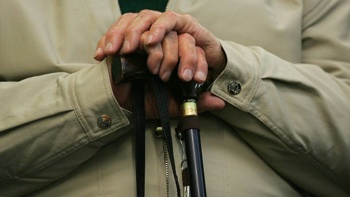The Inland Revenue Department has tallied the tax it has taken from people over the last financial year and has begun the process of giving any extra back - and chasing up tax owed.
The IRD issued income tax assessments on Saturday and has sent them out to Kiwis.
In most instances, the IRD sends income tax assessments in a letter on its online portal MyIR.

Photo / Nathan Crombie
And thanks to the automatic calculation and payment process, often there is nothing for you to do to claim your refund. The IRD will deposit it into the bank account it has on file for you.
“We work out your income tax for you if we have all your income information for the tax year – 1 April to 31 March," the department’s website says.
“This income tax assessment shows if you are due a refund, have a tax bill or have paid the right amount of tax.
“We pay refunds into the bank account we have on file for you when we process your income tax assessment, so not everyone will get theirs at the same time.”
Customers would be contacted if the IRD doesn’t have bank account details.
“You can check and update your bank account details at any time.”
The department said customers should have the money in their account within a few days, and if there was an issue with your bank receiving it, it should bounce back to the IRD.
But how can you get your money faster? The IRD said keeping your details up to date would streamline the process - “and we’ll pay any refund owing straight away”.
What if you owe tax?
The IRD’s tax assessment letters will also tell you if you owe tax.
What do you need to do then, and how is it possible to owe tax anyway?

It’s tax refund season, so how do you know if you’re in for a windfall?
IRD said you might get a tax bill because your income changed during the year, some of your income was not taxed correctly, your tax rates for your investments changed partway through the year, you had an employer share income that did not have tax deducted, you got the independent earner tax credit during the year but your total income was over the threshold, your income increased after tax thresholds changed during the tax year, or your schedular payment tax rate was too low,
If you do have to pay tax owing, most people need to pay it by February 7, 2026.
Raphael Franks is an Auckland-based reporter who covers business, breaking news and local stories from Tāmaki Makaurau. He joined the Herald as a Te Rito cadet in 2022.
Take your Radio, Podcasts and Music with you









